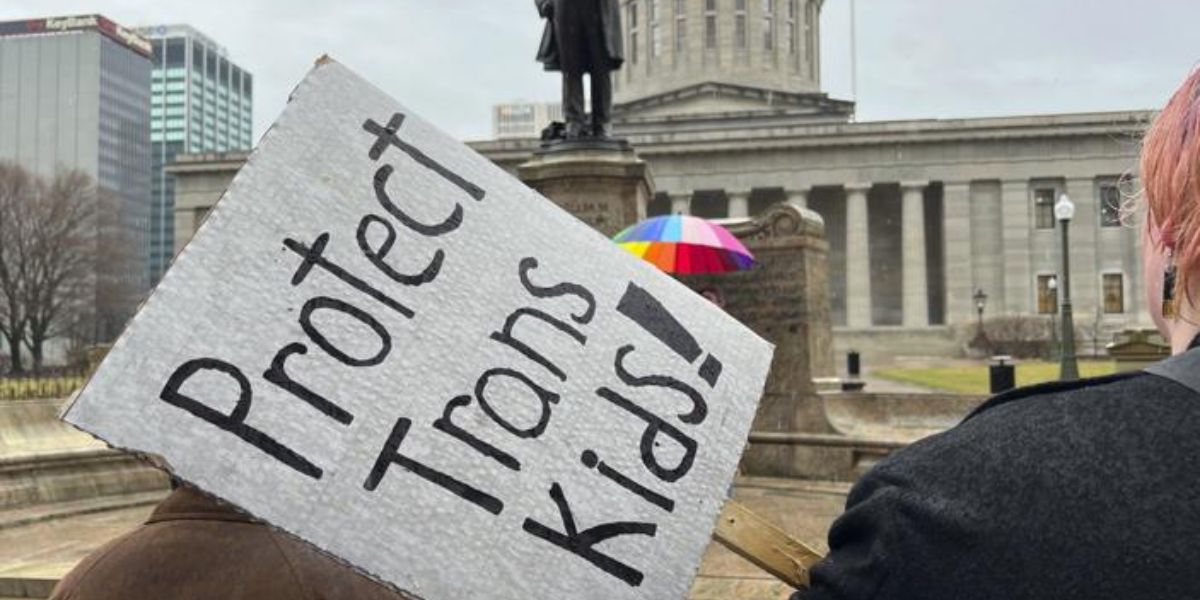Biden Administration Strengthens Protections for LGBTQ+ Students Under Title IX
LGBTQ+ students’ rights will be safeguarded by federal law, and victims of school sexual assault will receive new protections under rules announced Friday by the Biden administration.
The new rules are part of a revamped Title IX regulation issued by the Education Department, which fulfills President Joe Biden’s campaign vow. He had promised to repeal regulations enacted by previous Education Secretary Betsy DeVos, who established greater safeguards for students accused of sexual misconduct. Biden’s agenda makes no mention of transgender athletes.
The government had planned to include a new policy prohibiting schools from outright banning transgender athletes, but that measure was placed on hold. The postponement is widely regarded as a political ploy during an election year when Republicans have rallied around prohibitions on transgender athletes in girls’ sports. Instead, Biden is officially repealing sexual assault policies enacted by his predecessor and current election-year opponent, former President Donald Trump. Victims’ advocates praised the final legislation, while Republicans said that it undermines accused students’ rights.
The new rule makes “crystal clear that everyone can access schools that are safe, welcoming, and respect their rights,” Education Secretary Miguel Cardona stated. Cardona told reporters that no one should be bullied or discriminated against simply because of who they are or who they love. “Sadly, this happens all too often.”
Biden’s regulation seeks to clarify schools’ requirements under Title IX, a 1972 women’s rights law that prohibits sex discrimination in education. It applies to colleges, and basic, and secondary schools that receive federal funding. The change is scheduled to take effect in August.
One of the most significant changes is the new understanding that Title IX protects LGBTQ+ students, which has sparked fierce opposition from Republicans.
The 1972 statute does not specifically address the problem, but the new standards make it clear that Title IX also prohibits discrimination based on sexual orientation or gender identity. LGBTQ+ students who suffer discrimination are entitled to a response from their school under Title IX, and those who are not satisfied can seek legal redress from the federal government.
Many Republicans argue that Title IX was never meant to provide such safeguards. A federal judge earlier halted Biden administration guidelines on the same issue after 20 Republican-led states challenged it.
Rep. Virginia Foxx, a Republican from North Carolina and chairman of the House Education and Workforce Committee said the new law jeopardizes decades of progress for women and girls.
“This final rule dumps kerosene on the already raging fire that is Democrats’ contemptuous culture war that aims to radically redefine sex and gender,” Foxx stated in a press release.
The adjustment was proposed nearly two years ago, but progress has been hampered by a comment session that received 240,000 comments, a record for the Education Department.
Many of the adjustments aim to guarantee that schools and colleges respond to allegations of sexual misconduct. In general, the guidelines broaden the types of wrongdoing that institutions must handle, and they provide stronger rights to students who file complaints.
One of the most significant modifications is a broader definition of sexual harassment. Schools must now address any unwanted sex-based behavior that is so “severe or pervasive” that it interferes with a student’s equal access to an education.
The DeVos guidelines required conduct to be “severe, pervasive, and objectively offensive,” a higher standard that excluded various sorts of misconduct outside the scope of Title IX. Colleges will no longer be required to hold live hearings to allow students to cross-examine one another through representatives, a key feature of the DeVos guidelines.
Live hearings are permitted under the Biden rules, but they are optional and have new limitations. Students must be permitted to participate remotely in hearings, and schools must prohibit “unclear or harassing” inquiries.
As an alternative to live hearings, college officials can conduct individual interviews with students, allowing each student to offer questions and record their responses.
Those hearings were a major source of dispute among victims’ advocates, who claimed they forced sexual assault survivors to confront their assailants and discouraged them from reporting crimes. Supporters claimed it provided accused students with a fair opportunity to interrogate their accusers, noting that colleges had become overly quick to rule against accused students.
Victims’ advocates hailed the revisions and asked institutions to implement them as soon as possible.
“After years of pressure from students and survivors of sexual violence, the Biden Administration’s Title IX update will make schools safer and more accessible for young people, many of whom suffered irreparable harm while fighting for protection and support,” said Emma Grasso Levine, a senior manager at the Know Your IX organization.
Despite the emphasis on victim safety, the new guidelines include some safeguards for accused students.
The new policy requires that all students have equal access to present evidence and witnesses, as well as to evidence. All students will be permitted to bring an advisor to campus hearings, and universities must provide an appeals mechanism.
In general, accused students cannot be reprimanded until they have been proven liable for misconduct, while the code provides for “emergency” removals if it is deemed necessary for campus safety. The new change extends a back-and-forth political war in which presidential administrations routinely revise the regulations governing campus sexual misbehavior.
The DeVos regulations were a reform of an Obama-era policy designed to force institutions to take campus sexual assault allegations more seriously. After years of near-constant upheaval, several institutions are now advocating for a political middle ground to end the whiplash.











